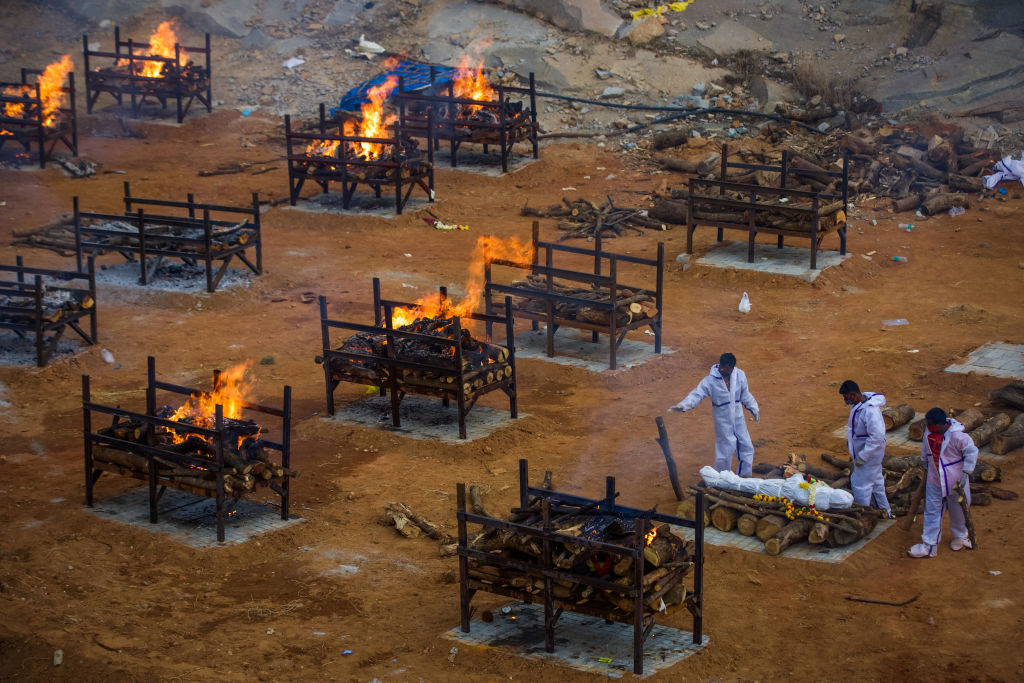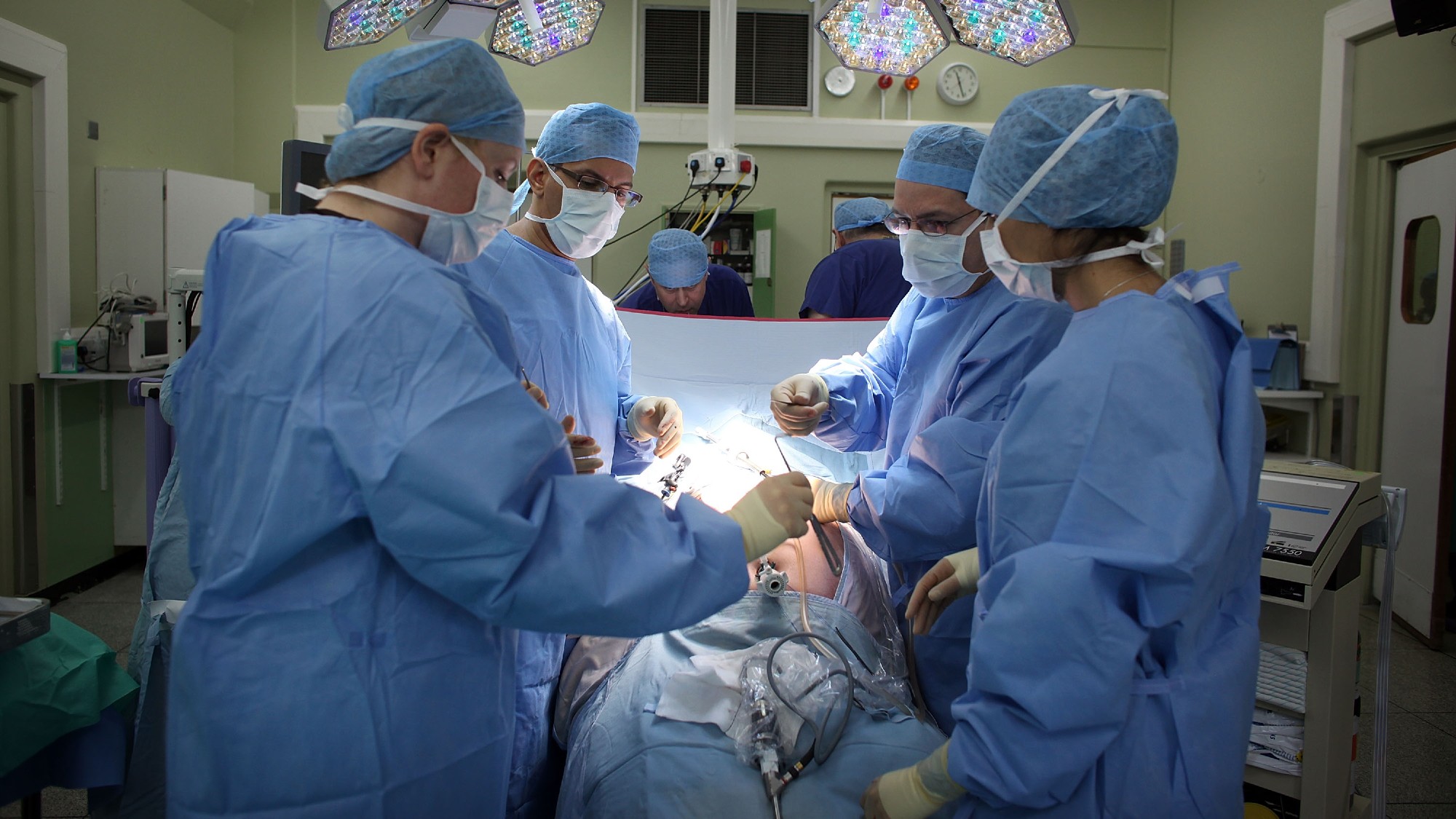What the U.S. can learn from India's brutal Delta surge


A free daily email with the biggest news stories of the day – and the best features from TheWeek.com
You are now subscribed
Your newsletter sign-up was successful
The Delta variant of the COVID-19 coronavirus was identified in India in late 2020, and in March, "a catastrophic surge in coronavirus cases ripped through India, killing tens of thousands in a matter of weeks, before plunging just as sharply," The Washington Post reports. The sharp drop, instead of the predicted continued exponential rise, surprised public health officials, but the virus hasn't faded away or even dropped to pre-March numbers. In some parts of India, cases are on the rise again.
"India's experience with the Delta variant, which was responsible for nearly 90 percent of cases in May at the peak of the second wave, offers a preview for other countries, including the United States and China, as they grapple with the stubbornly persistent variant," the Post says.
The first lesson is that if there are pockets of people without immunity — either from vaccines, or previous exposure to the coronavirus — the Delta variant will ruthlessly seek them out. India's vaccination rate is low, but a national seroprevalence survey released in July suggested that about two-thirds of the country has antibodies after the brutal spring surge. Karala state, India's current epicenter, reported 44 percent seropositivity.
The Week
Escape your echo chamber. Get the facts behind the news, plus analysis from multiple perspectives.

Sign up for The Week's Free Newsletters
From our morning news briefing to a weekly Good News Newsletter, get the best of The Week delivered directly to your inbox.
From our morning news briefing to a weekly Good News Newsletter, get the best of The Week delivered directly to your inbox.
"Another lesson in India's experience dealing with its delta wave: Infection among children isn't likely to be severe," the Post reports. India's numbers "are on par with data shared by UNICEF on infection rates among children: Fourteen percent of all coronavirus infections in 103 countries were made up of people younger than 20. The mortality rate for the age group was less than 1 percent."
A third lesson is that — "for reasons clear to no one — Delta appears to peak and fall quickly," says Dr. Bob Wachter at U.C. San Francisco. That happened in India and also Britain. The U.K., like the U.S., has a relatively high immunization rate, and Britain could be approaching "population immunity, with people immune either from vaccinations or natural infection," suggests Paul Hunter, a professor of medicine at the University of East Anglia.
Ashish Jha, dean of the Brown University School of Public Health, said what he's learned from closely observing India's Delta surge is that it's really difficult to predict when and how the next COVID-19 wave will hit. He estimated that the Delta variant is so infectious, another surge is probably coming unless 80 to 90 percent of the population is vaccinated.
A free daily email with the biggest news stories of the day – and the best features from TheWeek.com
Peter has worked as a news and culture writer and editor at The Week since the site's launch in 2008. He covers politics, world affairs, religion and cultural currents. His journalism career began as a copy editor at a financial newswire and has included editorial positions at The New York Times Magazine, Facts on File, and Oregon State University.
-
 Political cartoons for February 21
Political cartoons for February 21Cartoons Saturday’s political cartoons include consequences, secrets, and more
-
 Crisis in Cuba: a ‘golden opportunity’ for Washington?
Crisis in Cuba: a ‘golden opportunity’ for Washington?Talking Point The Trump administration is applying the pressure, and with Latin America swinging to the right, Havana is becoming more ‘politically isolated’
-
 5 thoroughly redacted cartoons about Pam Bondi protecting predators
5 thoroughly redacted cartoons about Pam Bondi protecting predatorsCartoons Artists take on the real victim, types of protection, and more
-
 A Nipah virus outbreak in India has brought back Covid-era surveillance
A Nipah virus outbreak in India has brought back Covid-era surveillanceUnder the radar The disease can spread through animals and humans
-
 Trump HHS slashes advised child vaccinations
Trump HHS slashes advised child vaccinationsSpeed Read In a widely condemned move, the CDC will now recommend that children get vaccinated against 11 communicable diseases, not 17
-
 How music can help recovery from surgery
How music can help recovery from surgeryUnder The Radar A ‘few gentle notes’ can make a difference to the body during medical procedures
-
 FDA OKs generic abortion pill, riling the right
FDA OKs generic abortion pill, riling the rightSpeed Read The drug in question is a generic version of mifepristone, used to carry out two-thirds of US abortions
-
 RFK Jr. vaccine panel advises restricting MMRV shot
RFK Jr. vaccine panel advises restricting MMRV shotSpeed Read The committee voted to restrict access to a childhood vaccine against chickenpox
-
 Texas declares end to measles outbreak
Texas declares end to measles outbreakSpeed Read The vaccine-preventable disease is still spreading in neighboring states, Mexico and Canada
-
 RFK Jr. shuts down mRNA vaccine funding at agency
RFK Jr. shuts down mRNA vaccine funding at agencySpeed Read The decision canceled or modified 22 projects, primarily for work on vaccines and therapeutics for respiratory viruses
-
 Measles cases surge to 33-year high
Measles cases surge to 33-year highSpeed Read The infection was declared eliminated from the US in 2000 but has seen a resurgence amid vaccine hesitancy
